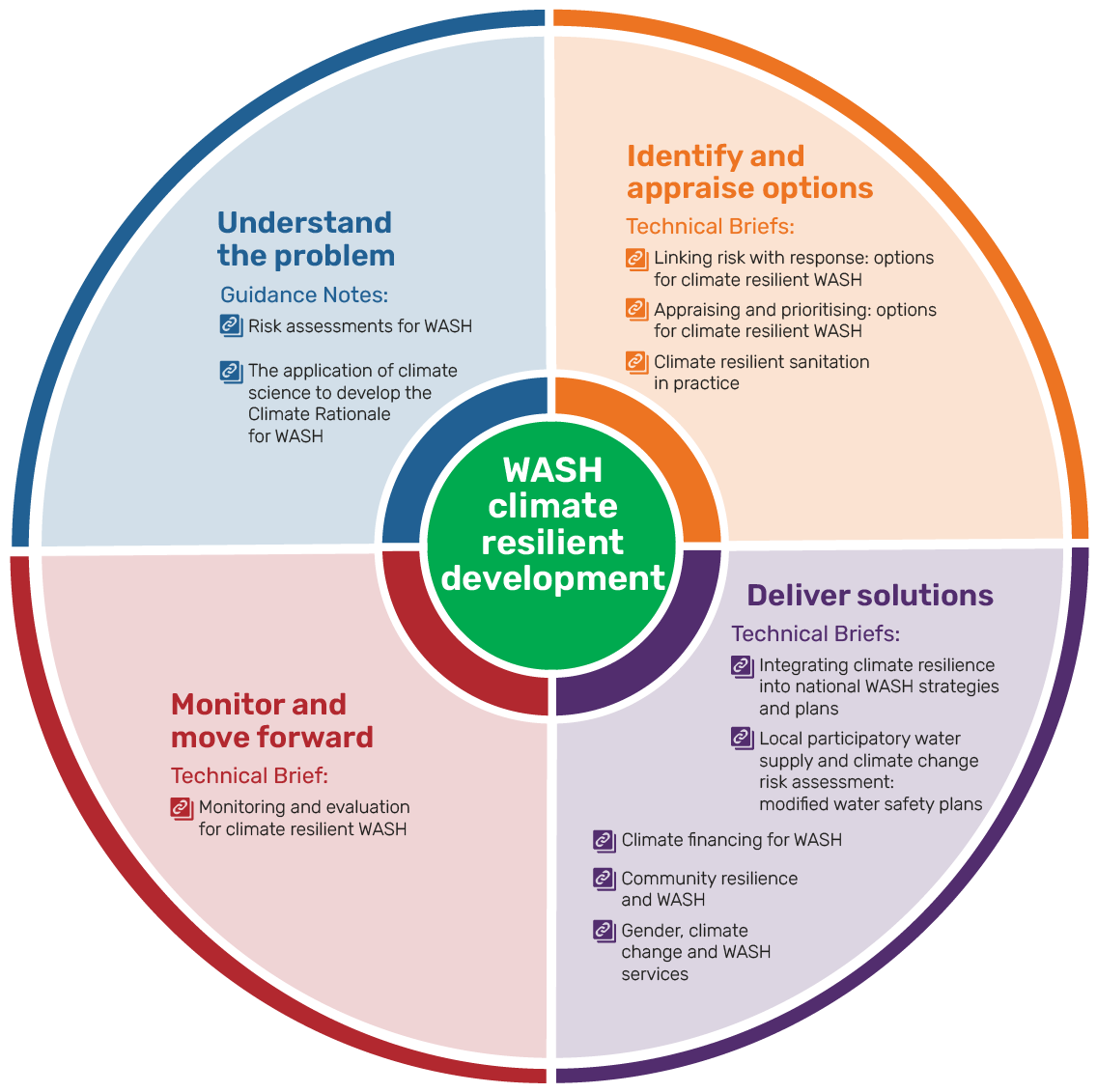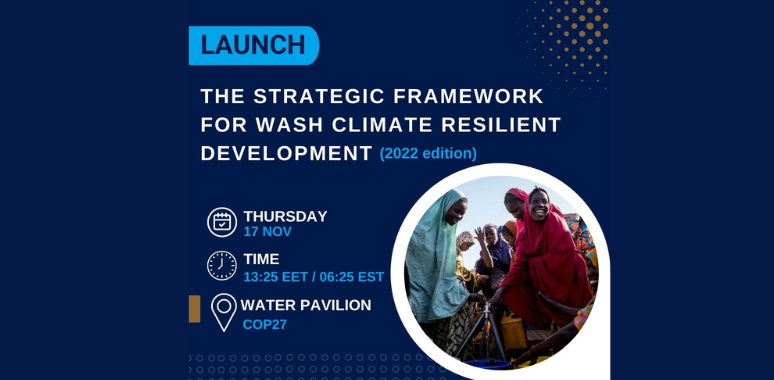Climate change and extreme events are damaging and destroying water, sanitation and hygiene (WASH) services in households, communities, schools, health care facilities and cities.That is why GWP and UNICEF today launched the 2022 edition of the Strategic Framework for WASH Climate Resilient Development at the COP 27 Water Pavilion.
The frameworkhas been updated to highlight the many positive developments in the WASH and climate sectors in recent years, including the potential of climate finance for the WASH sector, as well the opportunity to integrate WASH and water resources management as key national climate priorities. Engagement on climate issues has also been highlighted in the report, as well as the employment and skills potential of this sector, particularly among young people.
Speaking at the event, Pablo Bereciartua, Chair of the Global Water Partnership, acknowledged that while progress has been made in the provision of safe water and sanitation services, an estimated 22 percent of the world’s population still do not have access to a basic sanitation service.
He emphasized the need for the integration of climate considerations into all stages of WASH programming and expressed his belief that this edition of the Strategic Framework will help to ensure that investments in the WASH sector are climate resilient and sustainable.
The revision of the Framework highlights the many new opportunities to do this at scale, with new approaches and technologies, and different sources of financing and partnerships, and the time is now.
The Strategic Framework and the associated resources


